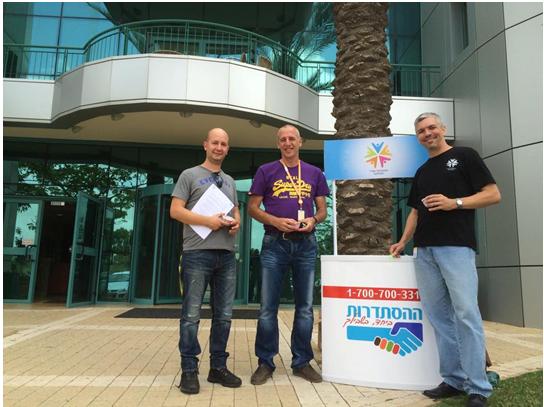In the past week, employees at Ernst & Young (Israel) – Kost, Forer, Gabbay & Kasierer – Israel’s largest accounting firm, have begun organizing a workers’ committee, while making grave allegations against the firm’s management concerning what they call low pay and poor working conditions. An anonymous e-mail message was sent to most of the firm’s employees on Wednesday, May 20, asking workers to express support for the establishment of a workers’ committee by sending an e-mail message to a special mailbox. By the end of the day, 300 messages from workers asking to join the workers’ committee had been received, and the number has currently reached more than 400.
In 2014, leading accounting firms in Israel are still unwilling to disclose their income, even though this information is made public elsewhere in the world. Ernst & Young, whose Israeli branch are the offices of Kost, Forer, Gabbay & Kasierer, is annually the global the leader in all parameters, and reported an income of NIS 27.4 billion for 2013. The firm in Israel has an annual turnover in the hundreds of millions, if not billions, but the workers say that they see very little of this – thus their drive to organize.
In another, labor-related story, the Histadrut (General Federation of Labor in Israel) petitioned on Thursday, May 21, the Tel Aviv District Labor Court to rule against Amodcs and the “internal committee” set up at the company, alleging that the internal body was designed to thwart the organization of the company’s workers within the Histadrut. The Histradrut asserts in its petition that the systematic action of setting up an internal committee in the company is an attempt to disrupt authentic organization. The petition states, “This is a clever and sophisticated way of acting designed to evade the Pelephone ruling – which bans intervention by an employer in the organizing actions of its workers.” Amdocs provides IT solutions and systems to communications companies. It is active in Israel in Ra’anana, Haifa, Sderot, and Nazareth. Amdocs Israel has 4,500 employees working in Israel (as of September 2014), constituting 20% of all Amdocs workers worldwide.
The Histadrut is requesting an order forcing Amdocs’ management to halt its interference with the workers’ organizing at the company, and forbidding management to recognize the internal committee. The petition emphasizes that the internal committee is an imposter, and was not intended to change the balance of power between the employer and the employees through a collective agreement, but rather to frustrate organization by the Histadrut. “The goals of the internal committee are to preserve the current regime of personal contracts and the resulting power gap. This is in the employer’s interest, not that of a workers’ organization,” the Histadrut petition states.
The Histadrut told the court that the internal committee was created out of thin air after workers began organizing in the Histradrut. “In response to the open organization measures, an internal committee was suddenly (within 72 hours) established in an open, smooth, sophisticated, and meticulous way. This is not an instinctive reaction, but a planned, sophisticated, and well calculated one. The indications of its professional character give rise to suspicions of a guiding hand from Amdocs management in planning an immediate, strong, and professional counter response,” the Histadrut alleges.
The Histadrut notes that the internal committee at Amdocs notified company management that it had obtained the signatures of a third of the company’s workers, and therefore claimed that it was, by law, their representative. Amdocs management responded to the internal committee’s message by saying that it was examining the question of representation with the relevant parties.
The Histadrut is asking the court for an order enjoining Amdocs management from conducting collective negotiations with the internal committee; instructing the internal committee to refrain from behaving as a workers’ organization, because it is not in fact one; instructing Amdocs management to cease its intervention in the organization of workers in the Histradrut; and ordering company management not to recognize the internal committee as a representative organization.



